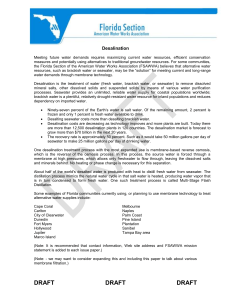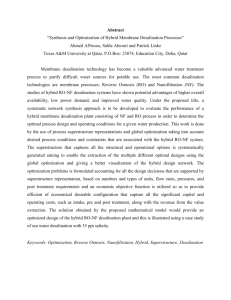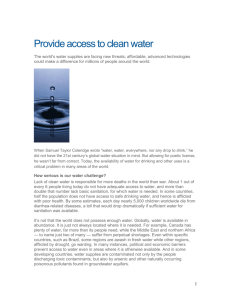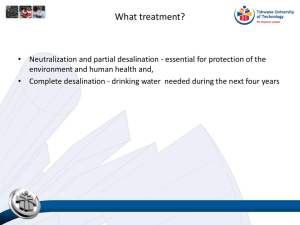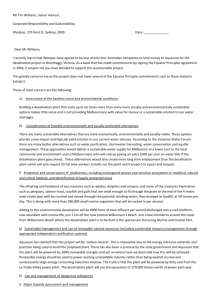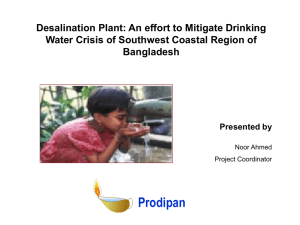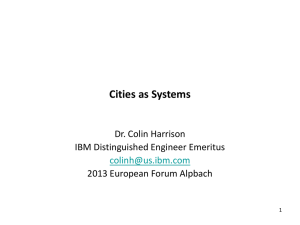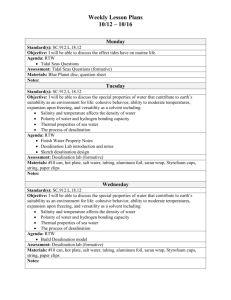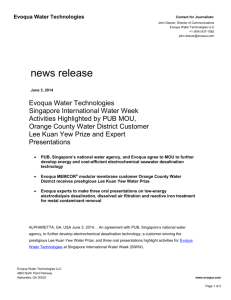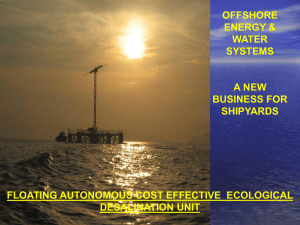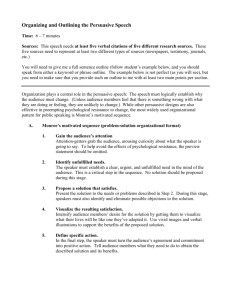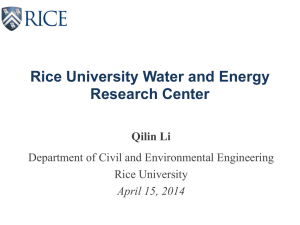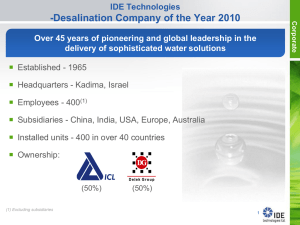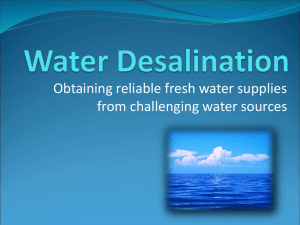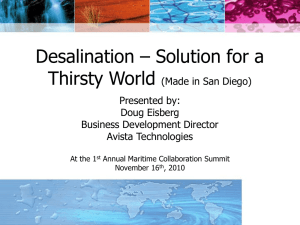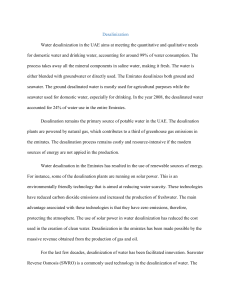The Role of Environmental Baseline Studies and Impact
advertisement
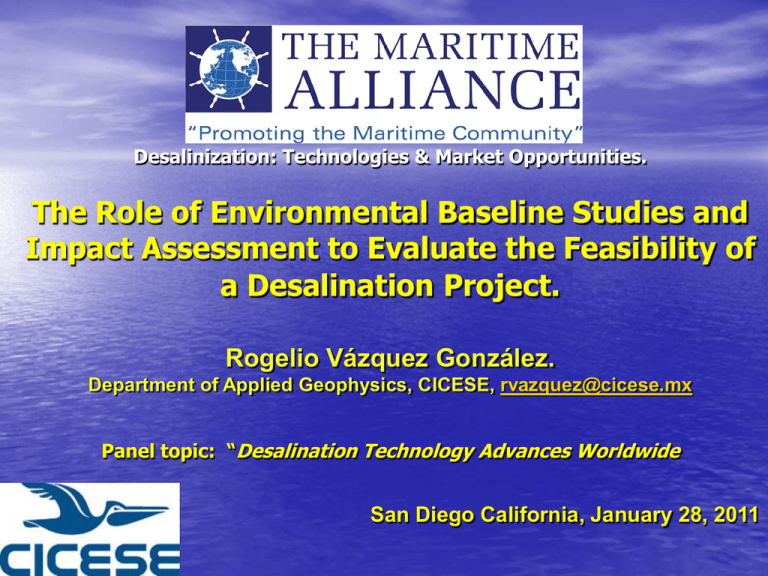
Desalinization: Technologies & Market Opportunities. The Role of Environmental Baseline Studies and Impact Assessment to Evaluate the Feasibility of a Desalination Project. Rogelio Vázquez González. Department of Applied Geophysics, CICESE, rvazquez@cicese.mx Panel topic: “Desalination Technology Advances Worldwide San Diego California, January 28, 2011 Introduction The southwest of USA and northwest of Mexico are one of the fastest growing regions. We are faced with the challenge of expanding the basic service infrastructure to fulfill the growing demand, particularly fresh water. Several binational efforts have been strongly promoted in the last years: • Binational Desalination Meeting Otay Water District July 14, 2010 • Mexico Water and Wastewater Projects: Opportunities for U.S. Business Seminar Organized by U.S. Commercial Service at AWWA ACE09 San Diego CA. June 15, 2009 • ARIZONA-MEXICO COMMISION SUMMER PLENARY 2009 Water Committee Phoenix Arizona June 5, 2009 • Binational Cooperative Process, New Water Supplies Work Group San Diego California, August 5, 2008 • ARIZONA-MEXICO COMMISION SUMMER PLENARY 2008 Water Committee Phoenix Arizona June 20, 2008 • Seminar on: Doing Business in Mexico Water Industry American Water Works Association Atlanta Georgia, June 9, 2008 South of the border, the sources for the water being supplied to satisfy the current demand, are being operated at the limit of their capacity and locally there is no other groundwater sources . Given that, Water Authorities have considered desalination sea water to satisfy their requirements. Which method of desalination is most appropriate? Membrane processes – Reverse Osmosis – Nanofiltration – Electro-Dialysis Reversal – Forward Osmosis Thermal processes – Flash Distillation – Multi-Effect Distillation – Membrane Distillation Reverse osmosis (RO) is the most popular desalination process used in the world. Improvements in efficiency have led to reduce energy consumption, cheaper processing costs. Where ? Desalination: a $10 Billion Industry! As we have seen in the previous presentations desalination is an industry, $10 billion industry. Indeed there is a huge market regarding desalination projects and new technology development will play a central part in the business. Now the question: How many of these 10 billion dollars will be lost by the lack of well-conducted baseline studies and proper environmental impact assessment? Ensenada Project: Desalination Plant Feasibility In October 2009, the State Water Commission of Baja California, established a General Agreement for Collaboration with the Center for Scientific Investigation and Higher Education of Ensenada (CICESE) to characterize the site to place a desalting plant and perform the Environmental Impact Assessment. CICESE is a Public Research institution coordinated by the National Council for Science and Technology (CONACYT ). Organization GENERAL DIRECTION Administrative Innovation and Development Telematics Graduates Earth Sciences •Applied Geophysics. •Geology. •Seismology. Applied Physics Oceanography •Computer Sciences. •Aquaculture. •Optics . •Marine Ecology. •Electronics and Telecommunications. •Biological Oceanography. • Physical Oceanography. http://www.cicese.edu.mx/ Experimental and Applied Biology •Conservation Biology. •Marine Biotechnology. •Experimental Microbiology. Baseline studies for evaluating potential locations for desalinization plants; Relevant aspects: Geology and Geochemistry Geohydrology and Geophysics Inland and marine Ecology Oceanography Power supply Development plans Population projections Key components of the facility: •The water intake. •The disposal of rejected water Specific studies inland for evaluating and characterize potential sources and type of water intake Site specific studies for evaluating potential locations BATHYMETRY CTD (Conductivity, Temperature, Depth) Environmental impact assessment Modeling dispersion of water rejected. Baseline studies for evaluating the composition and abundance of major groups of zooplankton and benthos in the area adjacent to the potential location of the intake and discharge facilities. Thanks !



